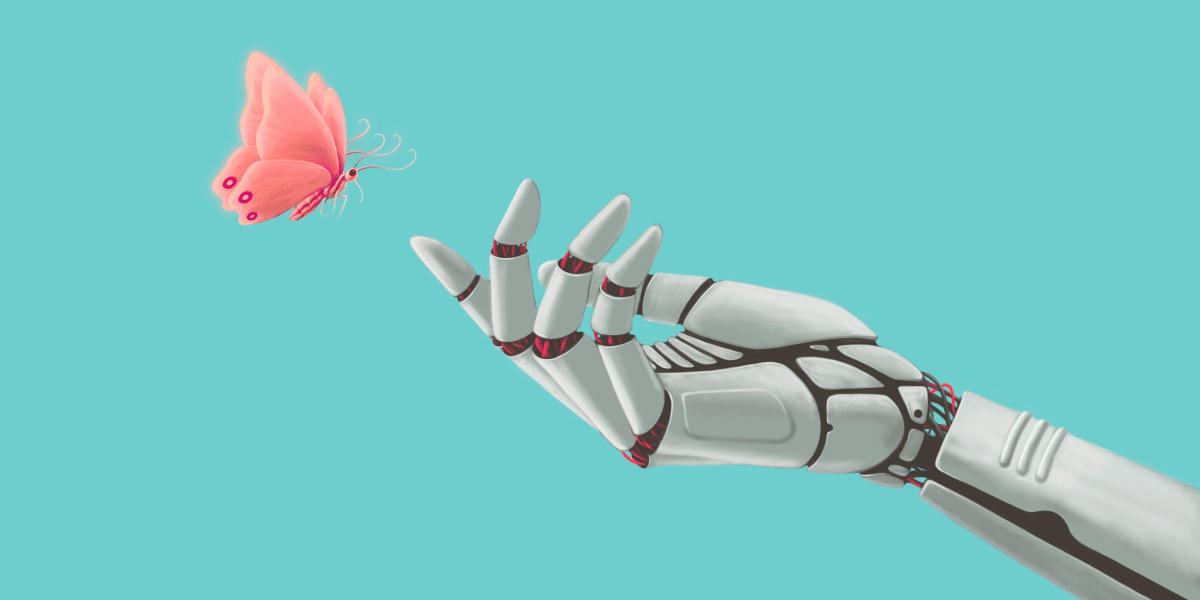Image commercially licensed from Unsplash
Serhiy Tokarev, IT entrepreneur and investor, co-founder and partner of the technology company Roosh
I have been working in the tech industry for over 20 years, and I must admit that I didn’t anticipate such a rapid development of AI technologies. Artificial Intelligence is fundamentally changing the world we live in, from the operational processes of individual companies to the overall state of society. The largest number of panels at this year’s Web Summit was dedicated to AI.
Of course, along with the development of Artificial Intelligence, discussions about the threats it poses are inevitable. The world is struggling to adapt to such rapid changes, partly because it doesn’t know how. Politicians, tech experts, and public figures voice numerous concerns related to issues such as ownership rights, the creation of deep fakes, the ethicality of AI decisions, and legal accountability for them. There are also discussions about AI potentially displacing many professions — according to investment company Goldman Sachs estimates, up to 300 million jobs worldwide could be automated by technology. Elon Musk has already called for a halt to the development of certain technologies, and OpenAI CEO Sam Altman has stated that Artificial Intelligence could lead to the end of human civilization.
Where there is fear, attempts to control emerge. For instance, this November in London, the AI Safety Summit, the world’s largest conference dedicated to regulating the field of Artificial Intelligence, took place. The event brought together top officials from 28 countries and representatives of leading AI companies. As a result of the summit, participants agreed to conduct safety testing on advanced AI models, and the United Kingdom announced the establishment of the AI Safety Institute, which will address the safety issues of AI in the interest of society. A similar trend can be observed outside Europe: U.S. President Joe Biden has already issued an order that, among other things, requires companies involved in AI development to inform the federal government about model training and share the results of safety testing.
It may seem that these actions will help steer the development of AI technologies in a controlled direction, but that’s not quite the case.
Firstly, all discussions regarding the field of artificial intelligence take place between government representatives and AI giants. This means that large companies, such as Meta or OpenAI, can dictate their own terms and, as a result, strengthen their positions in the market. This complicates the environment for small startups and slows down the overall development of technologies. It’s not regulation; it’s a hindrance.
Secondly, the current debates about AI are focused on highly unlikely scenarios. Can AI revolt against humanity? Will there be the end of civilization due to artificial intelligence? If it does happen (which I doubt), it won’t be anytime soon. However, the panic surrounding a phantom future distracts from real threats that are already in front of us — such as the use of deep fakes on the eve of the U.S. presidential elections.
We cannot predict all the challenges that the AI industry will bring in the future. However, we can address problems as they arise. I believe that in this field, applying precedent law is the best approach. A problem emerges — we examine it — a decision is being made — and a precedent is set.
I believe that framing ‘AI poses a threat to humanity’ is harmful. Artificial Intelligence is merely a tool, and how it is applied is determined by those who create and use the technology. If we talk about responsibility, it undoubtedly lies with humans.
Artificial Intelligence is more likely to save humanity than to destroy it. After all, we can program and predict technologies — something impossible to achieve with humans. People drive under the influence, commit acts of terrorism, and engage in nuclear blackmail. I think technology can prevent and counteract these actions.
I propose to view AI not as Artificial Intelligence but as Augmented Intelligence. It cannot replace human intelligence, but it can enhance and complement it. Thanks to the technology, we can make our work much more efficient: delegate all monotonous and routine tasks to AI and focus on more creative endeavors.
For example, in Reface, 80% of the code is written by using various AI tools. And I know that this happens in many tech companies. Has this reduced the number of programmers? No. Has it reduced their workload? Also, no. It’s just that now experts can accomplish twice as much work in the same amount of time.
Artificial Intelligence is actively used in Ukraine overall; for instance, since the beginning of the full-scale invasion, the ClearView AI facial recognition system has been applied, which has access to ten billion photos from social networks. This technology is used at checkpoints and, for example, to identify war criminals from russia.
There are examples of successful AI projects from Ukraine. For instance, the deep-tech company Zibra AI develops 3D assets for games and virtual environments using Artificial Intelligence. This year, the company raised $500,000 in investments from the American venture fund a16z, and its developer community has 100,000 users worldwide. Artificial Intelligence is utilized in various fields today: the Ukrainian educational platform Preply employs an AI assistant to help tutors create exercises and explanations, the service DeepGreen Ukraine detects illegal deforestation using satellite photos, and the Wincourt system makes predictions for judicial decisions.
In Ukraine, the AI community AI HOUSE is flourishing, aiming to advance the field of Artificial Intelligence in Ukraine and create new product startups. Over the past two years, the community, in collaboration with the technology company Roosh, has organized the educational charity project AI for Ukraine — a series of workshops and lectures delivered by global AI experts for Ukrainian professionals.

Ukraine is one of the leading countries in Eastern Europe in terms of AI implementation in the corporate sector. Today, as more countries impose restrictions on technology development, we can become a global platform for testing technologies of major companies working in the field of Artificial Intelligence. Primarily, we will demonstrate how the industry can flourish when not constrained — trust me, there will be no robot uprising. Through precedent law, we will not blindly restrict developers but establish certain rules for the industry.
Secondly, by providing a platform for development to top companies, we will attract investments and new technologies that will help Ukraine prosper economically and prove beneficial on the tech battlefield. Today’s war is a technology war, and for victory, we need to collaborate with top technology companies and develop the Ukrainian miltech industry.
War is expensive, and post-war reconstruction is even more expensive. By utilizing these opportunities, we can accelerate the pace of recovery and modernization of the country. Ukraine has already demonstrated impressive achievements in digitization and technology development — it’s time to raise the stakes and showcase results in the AI arena.

















